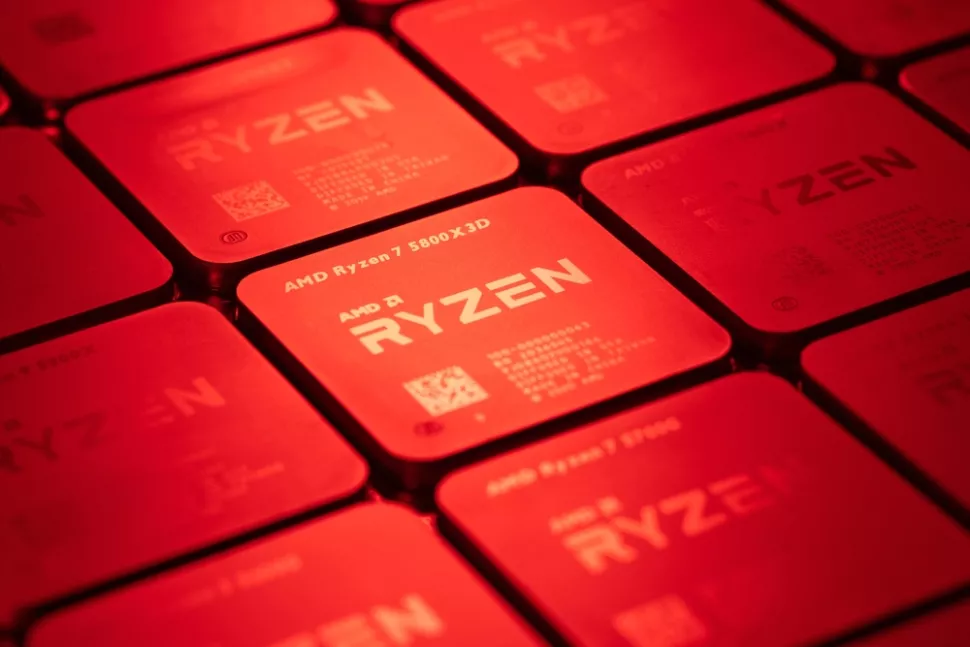AMD Confirms Its GPU Drivers Are Overclocking CPUs Without Asking

Collected Image
AMD has confirmed to Tom's Hardware that a bug in its GPU driver is, in fact, changing Ryzen CPU settings in the BIOS without permission. This condition has been shown to auto-overclock Ryzen CPUs without the user's knowledge.
Reports of this issue began cropping up on various social media outlets recently, with users reporting that their CPUs had mysteriously been overclocked without their consent. The issue was subsequently investigated and tracked back to AMD's GPU drivers.
AMD originally added support for automatic CPU overclocking through its GPU drivers last year, with the idea that adding in a Ryzen Master module into the Radeon Adrenalin GPU drivers would simplify the overclocking experience. Users with a Ryzen CPU and Radeon GPU could use one interface to overclock both. Previously, it required both the GPU driver and AMD's Ryzen Master software. Overclocking a Ryzen CPU requires the software to manipulate the BIOS settings, just as we see with other software overclocking utilities. For AMD, this can mean simply engaging the auto-overclocking Precision Boost Overdrive (PBO) feature. This feature does all the dirty work, like adjusting voltages and frequency on the fly, to give you a one-click automatic overclock.
However, applying a GPU profile in the AMD driver can now inexplicably alter the BIOS settings to enable automatic overclocking. This is problematic because of the potential ill effects of overclocking — in fact, overclocking a Ryzen CPU automatically voids the warranty. AMD's software typically requires you to click a warning to acknowledge that you understand the risks associated with overclocking, and that it voids your warranty, before it allows you to overclock the system. Unfortunately, that isn't happening here.
Overclocking isn't suitable for all systems, particularly those with lower-end coolers or motherboards, for instance. Naturally, overclocking also exposes you to increased risk of BSODs that can ultimately result in data loss. Overclocking also causes other ill side effects, like excessive heat generation, which is problematic if you don't have a suitable cooler.
Luckily Ryzen CPUs have robust protection features built in to prevent any physical damage to the chip. Still, system instability from a warranty-voiding feature isn't acceptable if you aren't made aware of the risks first. As such, we're sure that AMD will work quickly to resolve the issue. The company says that it will share more information soon, and we've asked about the warranty implications of this driver bug. We'll update you as we learn more.
Until then, users have taken to using the Radeon Software Slimmer to delete the Ryzen Master SDK from the GPU driver, thus preventing any untoward changes to the BIOS settings. This is not official advice from AMD, though, and since this is third-party software, proceed at your own risk. Also, note that users of Intel CPUs obviously aren't affected.
Reports of this issue began cropping up on various social media outlets recently, with users reporting that their CPUs had mysteriously been overclocked without their consent. The issue was subsequently investigated and tracked back to AMD's GPU drivers.
AMD originally added support for automatic CPU overclocking through its GPU drivers last year, with the idea that adding in a Ryzen Master module into the Radeon Adrenalin GPU drivers would simplify the overclocking experience. Users with a Ryzen CPU and Radeon GPU could use one interface to overclock both. Previously, it required both the GPU driver and AMD's Ryzen Master software. Overclocking a Ryzen CPU requires the software to manipulate the BIOS settings, just as we see with other software overclocking utilities. For AMD, this can mean simply engaging the auto-overclocking Precision Boost Overdrive (PBO) feature. This feature does all the dirty work, like adjusting voltages and frequency on the fly, to give you a one-click automatic overclock.
However, applying a GPU profile in the AMD driver can now inexplicably alter the BIOS settings to enable automatic overclocking. This is problematic because of the potential ill effects of overclocking — in fact, overclocking a Ryzen CPU automatically voids the warranty. AMD's software typically requires you to click a warning to acknowledge that you understand the risks associated with overclocking, and that it voids your warranty, before it allows you to overclock the system. Unfortunately, that isn't happening here.
Overclocking isn't suitable for all systems, particularly those with lower-end coolers or motherboards, for instance. Naturally, overclocking also exposes you to increased risk of BSODs that can ultimately result in data loss. Overclocking also causes other ill side effects, like excessive heat generation, which is problematic if you don't have a suitable cooler.
Luckily Ryzen CPUs have robust protection features built in to prevent any physical damage to the chip. Still, system instability from a warranty-voiding feature isn't acceptable if you aren't made aware of the risks first. As such, we're sure that AMD will work quickly to resolve the issue. The company says that it will share more information soon, and we've asked about the warranty implications of this driver bug. We'll update you as we learn more.
Until then, users have taken to using the Radeon Software Slimmer to delete the Ryzen Master SDK from the GPU driver, thus preventing any untoward changes to the BIOS settings. This is not official advice from AMD, though, and since this is third-party software, proceed at your own risk. Also, note that users of Intel CPUs obviously aren't affected.
Source: https://www.tomshardware.com
Tags :
Previous Story
- Foot Operated computer Mouse Wheel Launches in Japan...
- Asus recalls product after users 'smell smoke'
- Original Apple computer built by Jobs and Wozniak...
- You don't really need to upgrade from Windows...
- Nvidia’s next-generation self-driving toolkit is available for 2024...
- Original Apple computer built by Jobs and Wozniak...
- Scrap computer, electronics recycling to be held in...
- Dell launches new OptiPlex 7070 Ultra PC in...